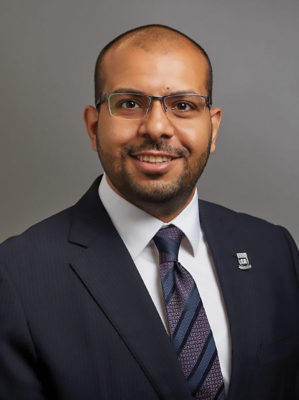June 14, 2020
Mercy Medical Center doctor offers new approach to treatment of vascular diseases
REGIONAL
Staff report

Dr. Mahmoud Abdelghany (iObserve photo/courtesy of Mercy Medical Center)
SPRINGFIELD – Mercy Medical Center is the first hospital in the area to offer a new treatment option for patients suffering from blockages in the leg arteries.
The procedure uses shockwave technology to dilate heavily calcified blockages or lesions, often correcting the condition without the need for a stenting device. An alternative to traditional angioplasty, the shockwave technology procedure minimizes surgical trauma and provides better patient outcomes.
Locally, the procedure is offered exclusively by Dr. Mahmoud Abdelghany, of Pioneer Valley Cardiology Associates, at Mercy Medical Center.
The shockwave technology uses a balloon catheter system designed to deliver a lithotripsy device through the peripheral arterial system of the lower extremities to the site of an otherwise difficult to treat calcified stenosis. During the procedure, the lithotripsy device generates pulsating mechanical energy within the targeted treatment site, breaking down calcium within the lesion and allowing subsequent dilation of a peripheral artery stenosis using low balloon pressure.
“This type of technology has long been used to treat patients with kidney stones. This procedure is a tremendous breakthrough for patients suffering from calcified peripheral artery disease because it allows for the controlled expansion of the affected area and reduces the risk of complications and the need for stenting,” said Dr. Abdelghany.
Dr. Abdelghany and his colleagues were the first in the world to use the shockwave technology in the treatment of chronic venous thrombosis which causes chronic leg swelling and pain.
Dr. Abdelghany is board certified in internal medicine, cardiovascular disease, nuclear cardiology, echocardiography, and vascular diseases.
For more information, call (413) 732-1928 or visit http://www.pvcardiology.com/pvcardiology.


 Facebook
Facebook Youtube
Youtube
